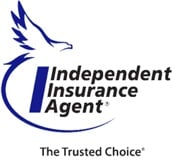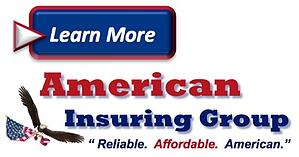 Every home-based business should be protected by commercial insurance. But the growth of the internet and other technological advancements –such as social collaboration tools and communication apps - have changed the way many of us do business today and significantly influenced the number of small businesses nationwide. In addition, the low start-up costs; the reduction in the cost of commuting, meals, and other expenses; the flexibility; and the savings realized from not maintaining a “storefront” are creating more home-based businesses. Sometimes home-based business owners forget that their homeowner's policy is unlikely to cover them for liabilities that can occur in their business.
Every home-based business should be protected by commercial insurance. But the growth of the internet and other technological advancements –such as social collaboration tools and communication apps - have changed the way many of us do business today and significantly influenced the number of small businesses nationwide. In addition, the low start-up costs; the reduction in the cost of commuting, meals, and other expenses; the flexibility; and the savings realized from not maintaining a “storefront” are creating more home-based businesses. Sometimes home-based business owners forget that their homeowner's policy is unlikely to cover them for liabilities that can occur in their business.
In 2014, there were 28 million small businesses in operation. Approximately half of the small businesses today are home-based businesses. The SBA reports that most of these home-based businesses are operating as sole proprietorships; others are s-corporations and partnerships, and the majority of them are service oriented.
But a home-based business is still a business. Owners need to understand the financial risks and responsibilities associated with this type of business, including how to protect that enterprise with the right business insurance for businesses run out of the home. It’s important to understand the differences between personal and commercial insurance liabilities and not assume that your personal insurance policies will always cover your home-based business insurance needs.
Here are five things every home-based business owner needs to consider protecting with the right business insurance.
- Home and Property Insurance – Most home owners’ or renters’ insurance policies only cover up to $2,500 for business property losses or damages. They also tend to exclude business-related liability claims and provide no provisions for any downtime associated with a property loss. Therefore, if you run your business from home, you may want to consider a business owner’s insurance policy, general liability insurance, business property insurance, and business interruption/continuation insurance. You may qualify for a homeowners' policy endorsement that modifies your standard policy.
- Auto Insurance – If you own or lease a vehicle almost exclusively used for business – whether it’s a small 10-year-old sedan or a large customized van complete with everything needed to groom a giant Greyhound - make sure your business name is listed as the principal insured. If your business involves transporting people, you should consider commercial vehicle insurance for the higher liability limits and special provisions that are available.
- Life Insurance – If your home-based business is a partnership, you may want to consider Key Person life insurance to ensure the organization’s future. If one partner dies the other partner (s) can use the life insurance payout to buy out the partner’s heirs, pay off outstanding loans, and continue operations. When considering key person life insurance, be sure to think about staff beyond the business owner. This type of coverage typically focuses on any person without whom the business would cease to exist.
- Health Insurance – Without health insurance, one extended stay in the hospital could mean the end of your business. Today, it’s much easier for small businesses to acquire health insurance – HMOs, PPOs, EPOs and other group plans. With the new Affordable Care Act, you may even qualify for a tax credit or subsidy if you purchase coverage through the new healthcare marketplace and failure to purchase health insurance could result in a tax penalty.
- Income Insurance – Worker’s Compensation insurance and disability insurance isn’t reserved for large companies. If you have just one employee, many states require that you purchase workers’ compensation insurance to protect your business from claims relating to work-related injuries and to protect the employee’s income. If your family relies on your income to survive, you should also consider Workers’ Compensation and/or disability for yourself, to ensure that you continue to see an income even if you are injured or become ill and can’t work.
Getting the Right Business Insurance for Your Home Business
There are also insurance “packages” available -known as Business Owners Policies (BOP) - that usually include property, business interruption, and liability insurance.
 The agents at American Insuring Group can help you determine the best commercial insurance for your home business. Contact us or give us a call at (800) 947-1270 or (610) 775-3848. As independent insurance agents, we're free to shop among many competing insurance companies, so we can find you the best deal on quality business insurance protection. Call or email today to learn more!
The agents at American Insuring Group can help you determine the best commercial insurance for your home business. Contact us or give us a call at (800) 947-1270 or (610) 775-3848. As independent insurance agents, we're free to shop among many competing insurance companies, so we can find you the best deal on quality business insurance protection. Call or email today to learn more!



 If you own a fleet of vehicles that are used exclusively for your business or you own a freight truck or delivery truck, you probably understand that you need commercial vehicle insurance on those vehicles. But what if you have one vehicle that you use to deliver pizzas? What if you use your personal vehicle to drive to job sites or to meetings?
If you own a fleet of vehicles that are used exclusively for your business or you own a freight truck or delivery truck, you probably understand that you need commercial vehicle insurance on those vehicles. But what if you have one vehicle that you use to deliver pizzas? What if you use your personal vehicle to drive to job sites or to meetings?
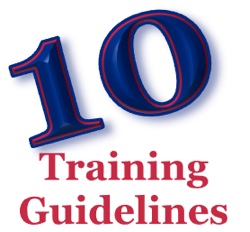 On average, thirteen Americans are killed on the job every single day of the year and nearly 4 million workers are seriously injured on the job each year. Under the Occupational Safety and Health (OSH) Act, employers are responsible for providing a safe working environment. Furthermore, employers “MUST provide their workers with a workplace that doesn’t have serious hazards and must follow all OSHA safety and health standards.”
On average, thirteen Americans are killed on the job every single day of the year and nearly 4 million workers are seriously injured on the job each year. Under the Occupational Safety and Health (OSH) Act, employers are responsible for providing a safe working environment. Furthermore, employers “MUST provide their workers with a workplace that doesn’t have serious hazards and must follow all OSHA safety and health standards.”  Get the Right Workers Compensation Insurance Protection
Get the Right Workers Compensation Insurance Protection Thirty-nine percent of households have dogs, so it’s no surprise that more companies – including Google, Etsy, and Build-A-Bear Workshop – are allowing employees to bring their dogs to work. After all, Congress has been dog friendly since the 19th century. And, according to a survey conducted by the American Pet Products Manufacturers, 17 percent of Americans work at pet-friendly companies. What are the benefits? What are the risks? Does your business insurance adequately cover the risks? You should know the answers to these questions before implementing a pet-friently workplace policy.
Thirty-nine percent of households have dogs, so it’s no surprise that more companies – including Google, Etsy, and Build-A-Bear Workshop – are allowing employees to bring their dogs to work. After all, Congress has been dog friendly since the 19th century. And, according to a survey conducted by the American Pet Products Manufacturers, 17 percent of Americans work at pet-friendly companies. What are the benefits? What are the risks? Does your business insurance adequately cover the risks? You should know the answers to these questions before implementing a pet-friently workplace policy. Contact Us for the Right Business Insurance Protection to Support a Pet-Friendly Workplace
Contact Us for the Right Business Insurance Protection to Support a Pet-Friendly Workplace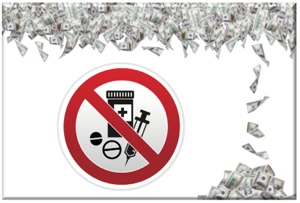 The National Council on Alcoholism and Drug Dependence (NCADD) estimates that drug abuse in the workplace costs business owners $81 billion annually.
The National Council on Alcoholism and Drug Dependence (NCADD) estimates that drug abuse in the workplace costs business owners $81 billion annually.  A drug-free workplace initiative can create a healthier workforce and improve your company’s bottom line, including lowering your workers compensation insurance claims and costs.
A drug-free workplace initiative can create a healthier workforce and improve your company’s bottom line, including lowering your workers compensation insurance claims and costs. 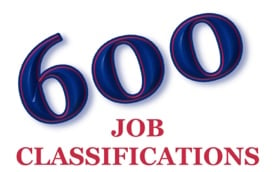 Worker's compensation insurance, job classifications, job risks and insurance premiums are all related. Job classifications, which are based on specific ratings and descriptions for all types of jobs, are determined by the National Council on Compensation Insurance (NCCI), the insurance industry’s ratings bureau. There are more than 600 different job classifications, and more are being added all the time, so it isn’t surprising that 30-35 percent of businesses have classification errors. But have you considered the potential impact on your business insurance costs that an erroneous job classification can bring?
Worker's compensation insurance, job classifications, job risks and insurance premiums are all related. Job classifications, which are based on specific ratings and descriptions for all types of jobs, are determined by the National Council on Compensation Insurance (NCCI), the insurance industry’s ratings bureau. There are more than 600 different job classifications, and more are being added all the time, so it isn’t surprising that 30-35 percent of businesses have classification errors. But have you considered the potential impact on your business insurance costs that an erroneous job classification can bring? Don’t wait for your
Don’t wait for your 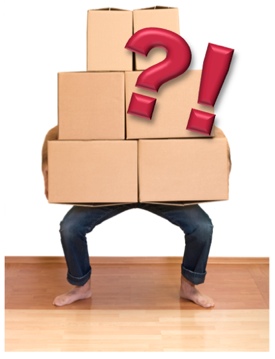
 Following these tips will help ensure the safety of your employees and reduce workers’ comp claims; however, injuries may still happen.
Following these tips will help ensure the safety of your employees and reduce workers’ comp claims; however, injuries may still happen. 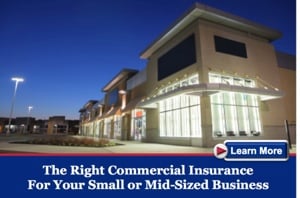

 Working in the food service industry often means hard work and long hours. You also face many unique challenges, including the responsibility of ensuring that the food you serve to your customers is safe. As any restaurant owner knows, a foodborne-illness can cause the loss of thousands of dollars and, in some cases, your entire business.
Working in the food service industry often means hard work and long hours. You also face many unique challenges, including the responsibility of ensuring that the food you serve to your customers is safe. As any restaurant owner knows, a foodborne-illness can cause the loss of thousands of dollars and, in some cases, your entire business.  You’ve worked hard to establish your restaurant business. Don't leave things to chance. Be sure you can survive any potential issues with a comprehensive
You’ve worked hard to establish your restaurant business. Don't leave things to chance. Be sure you can survive any potential issues with a comprehensive 